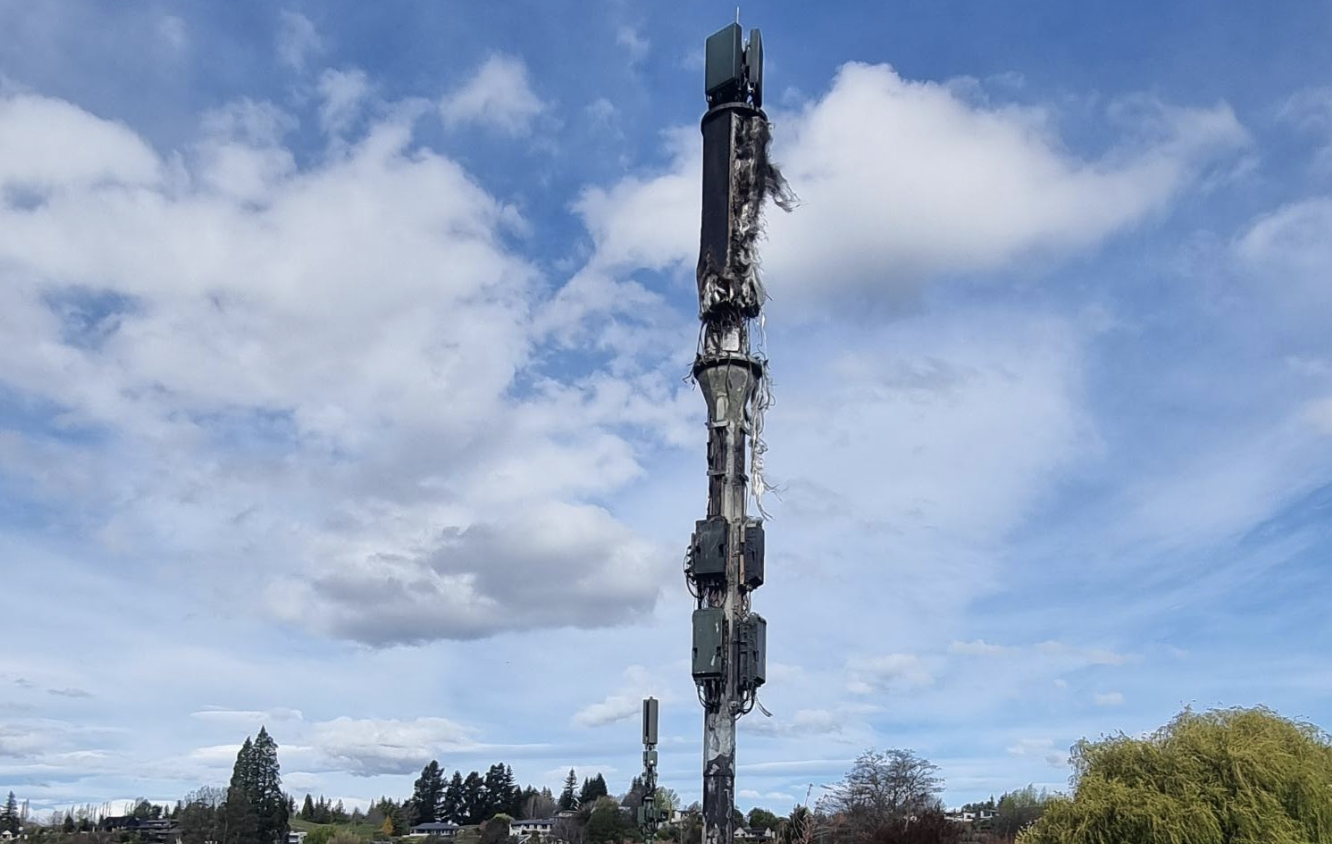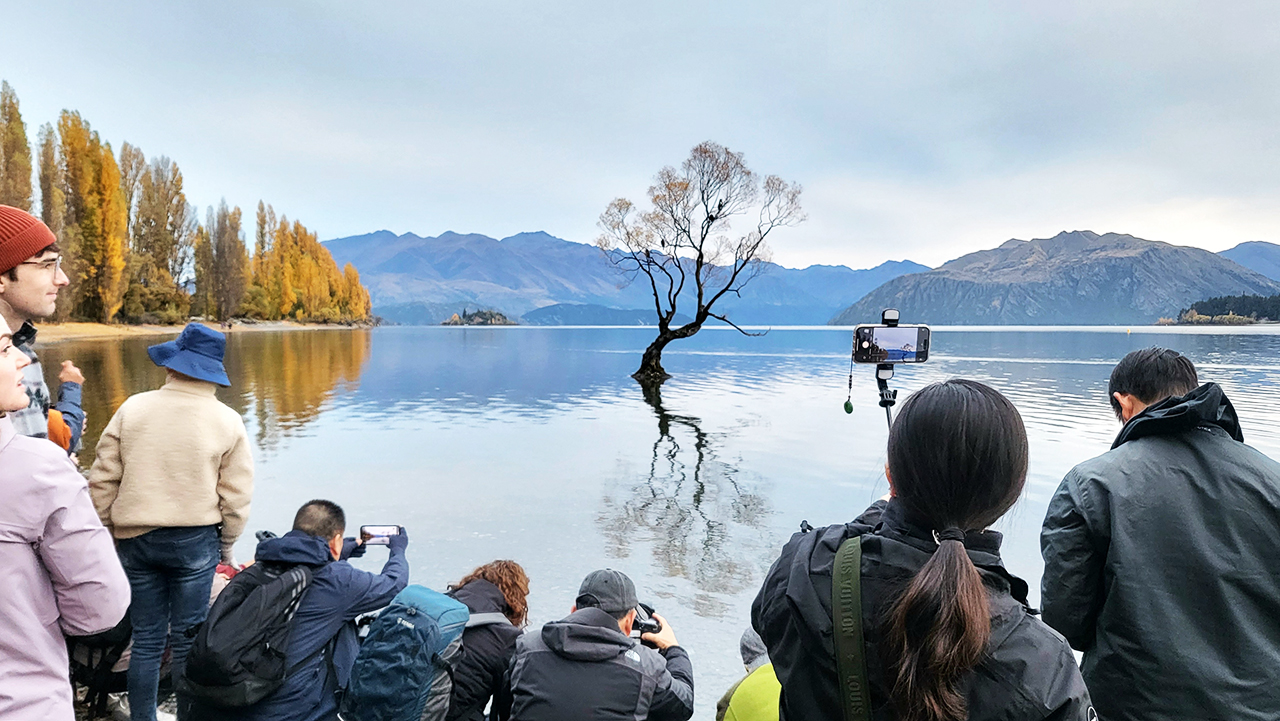New podcast explores world of LandSAR
Maddy Harker
08 October 2025, 4:00 PM
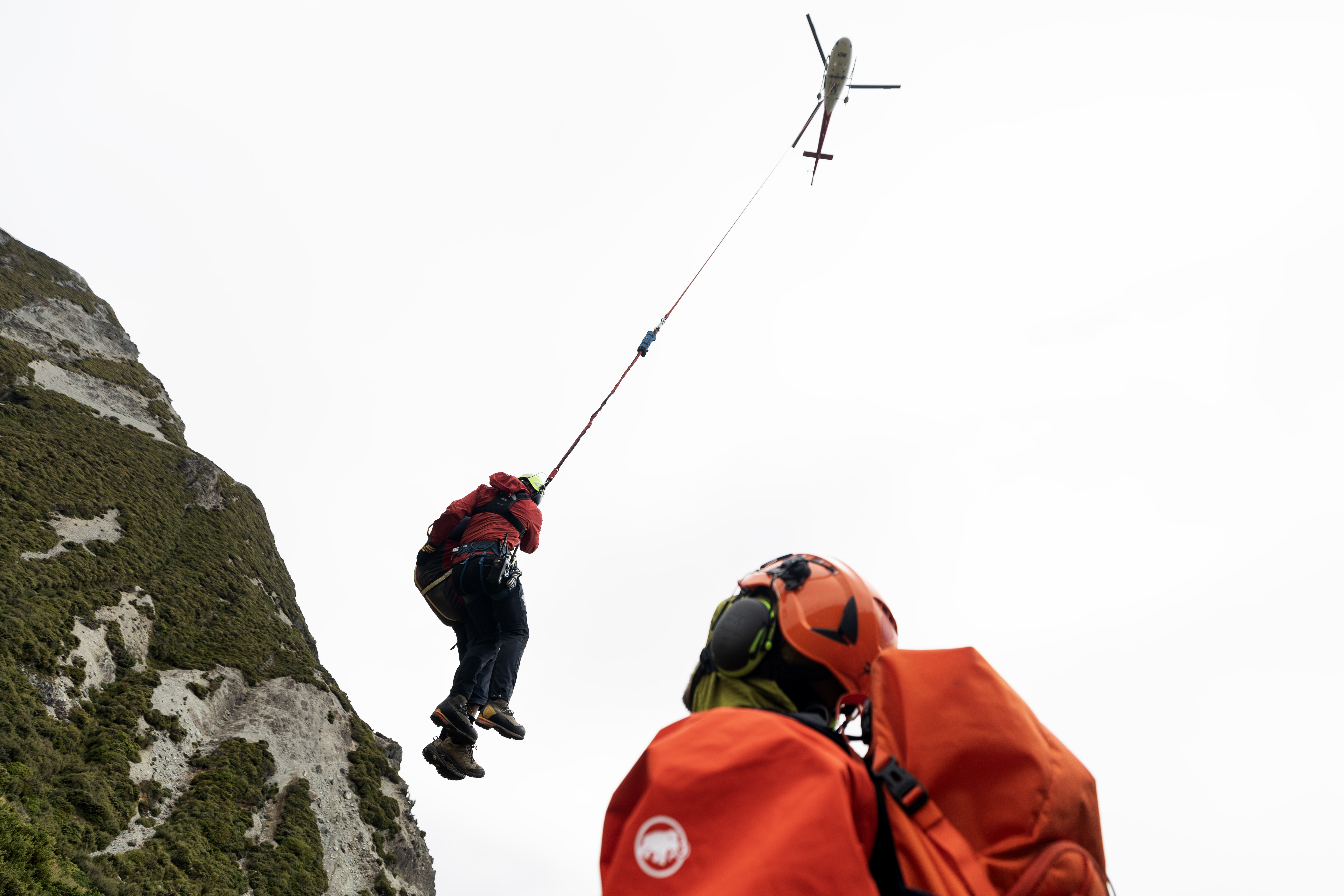 New podcast Search & Rescue NZ will take listeners behind the scenes of life and death rescue missions. PHOTO: George Heard/NZ Herald
New podcast Search & Rescue NZ will take listeners behind the scenes of life and death rescue missions. PHOTO: George Heard/NZ HeraldWhen Wānaka resident and keen tramper Paul Roy heads into the hills, he knows how quickly things can go wrong. His new podcast Search & Rescue NZ - which launches today - dives into the real-life dramas that unfold when they do.
Each year, thousands of people need to be rescued from New Zealand’s backcountry. Paul, the producer of the award-winning Deer Wars podcast, retraced missions from Cascade Saddle to the Tararua Ranges, talking to those who risked their lives to save others.
Listen to the Search & Rescue NZ trailer here.
“I have been a tramper for over 50 years and although I have never needed it, search and rescue was always a possibility, so it was sort of on my agenda,” Paul told the Wānaka App.
“And as a storyteller, either in television or radio, I was sure looking at search and rescue situations would throw up good human stories that would be very compelling as they deal with life and death situations.”
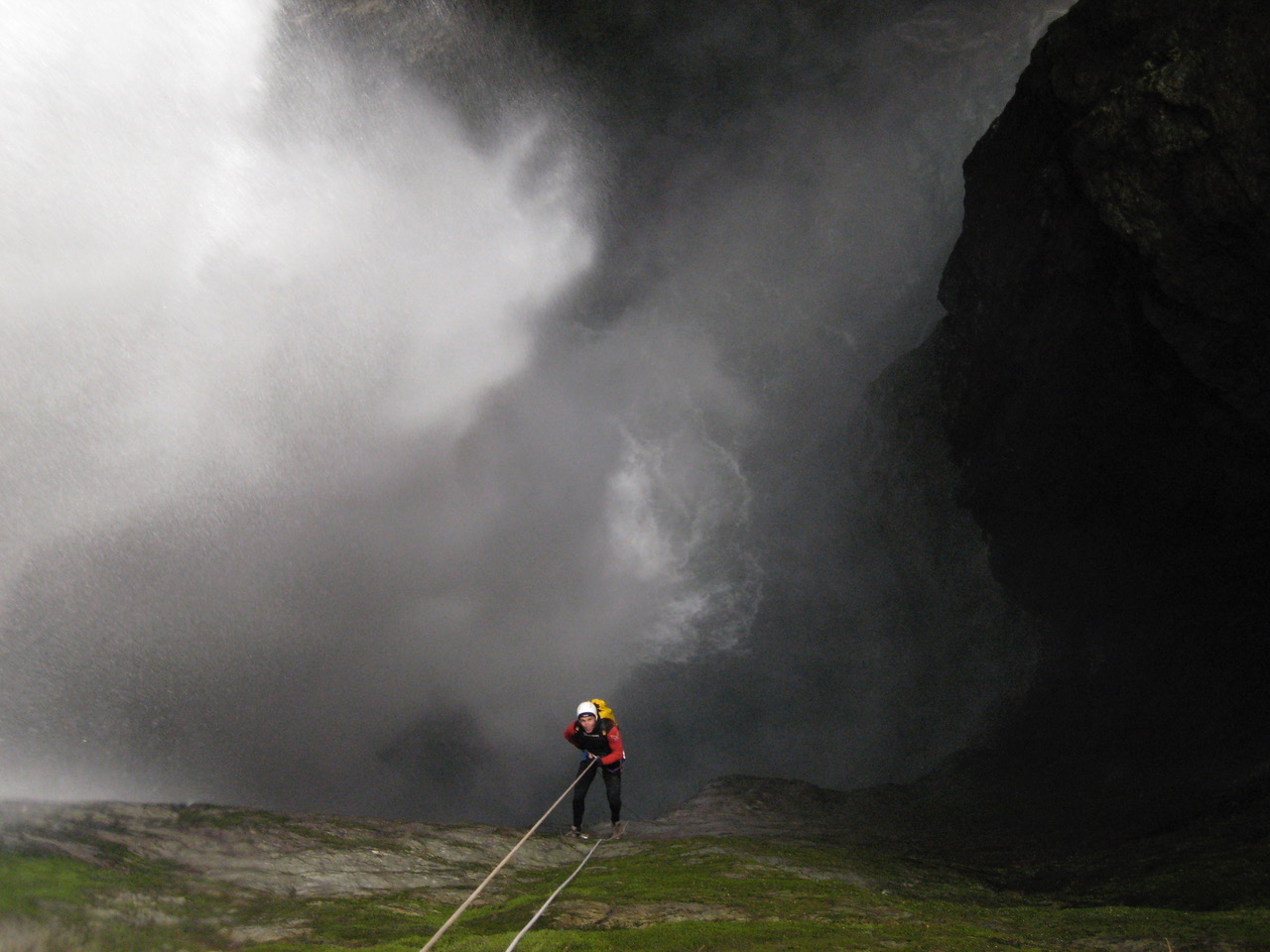
Volunteer rescuers tackle extreme terrain to save lives in New Zealand’s wilderness. PHOTO: James Speirs
The nine-part series revisits seven decades of high-stakes rescues - from early, improvised efforts to today’s co-ordinated responses by highly trained Land Search and Rescue (LandSAR) teams - blending archival material, first-hand accounts and the voices of rescuers and survivors.
“LandSAR personnel were very generous with their stories of rescues past, as were those who were rescued and I was able to reconstruct search and rescue operations in detail and go well beyond the usual news reports.”
Paul noted the pressures confronting LandSAR teams have evolved.
“I was taken back at the effects of mass tourism and social media and how many people are doing things ill-prepared and beyond their experience which in turn causes multiple call-outs for the LandSAR teams,” Paul said.
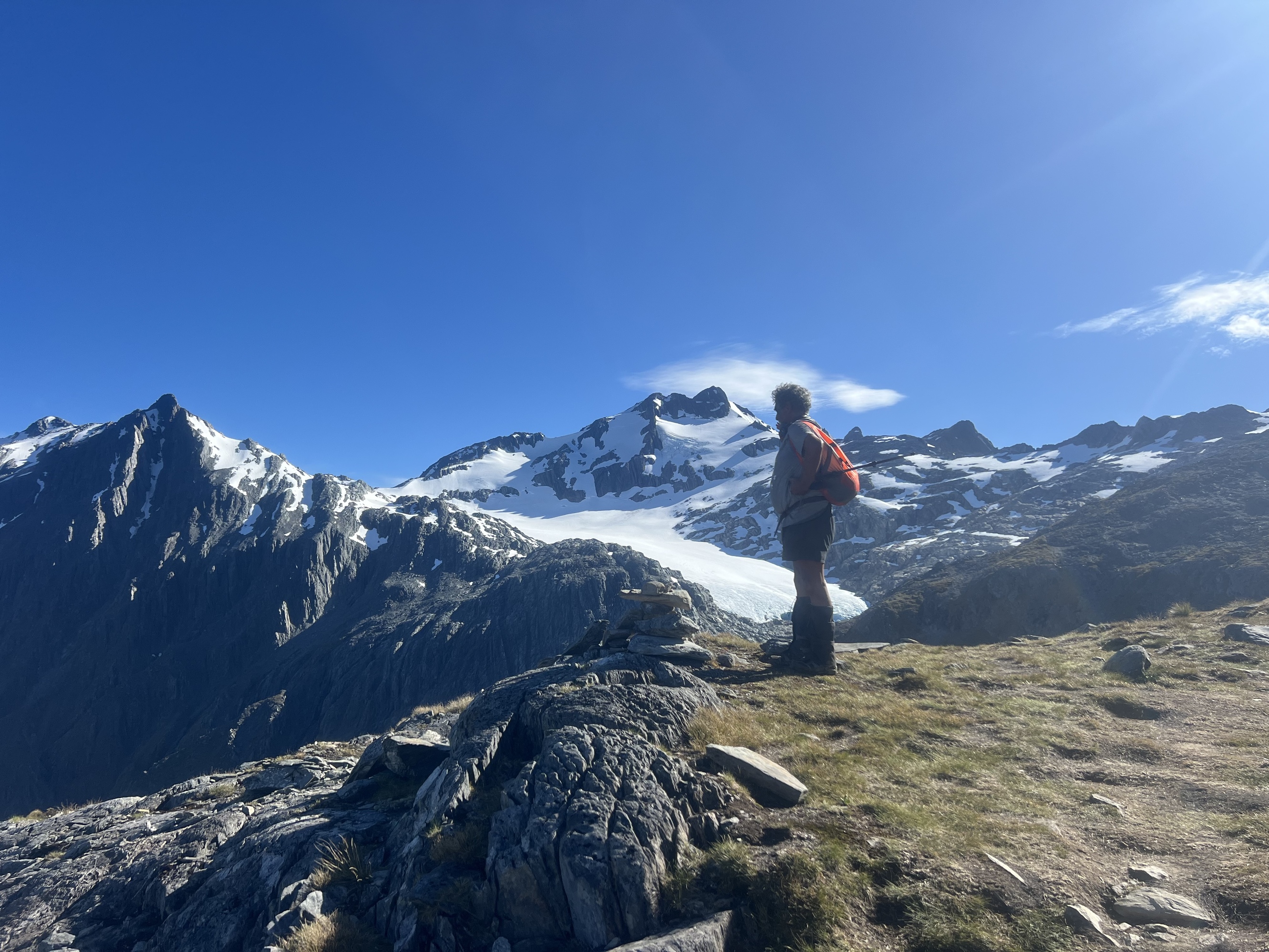
Paul Roy visits a backcountry site while researching episodes for Search & Rescue NZ. PHOTO: Paul Roy
Six of the podcast’s episodes feature local people or locations. Paul said while he could have covered rescues anywhere in the country, the area’s geography and outdoor culture made it a fitting focus.
“LandSAR in Wānaka has always had a lot of callouts,” he said.
“We are surrounded by mountains, rivers, gorges with a host of outdoor sports – climbing, tramping, paragliding, kayaking – all with inherent risk.”
Creating the podcast deepened Paul’s appreciation of the people who quietly risk their own lives for strangers.
“The thing a lot of people, including myself, take for granted and often forget, is that almost all LandSAR personnel are volunteers. They do a lot of training and put aside their own lives to help others – sometimes at great personal risk.”
He recalled former Wānaka LandSAR chairman Bill Day’s description: “LandSAR volunteers are quintessentially good bastards who get out of warm beds on stormy nights to go and look for strangers.”
Search and Rescue NZ is available now on all major podcasting platforms. It will also be aired on Radio New Zealand each Sunday morning at 7am, starting this Sunday (October 12).

